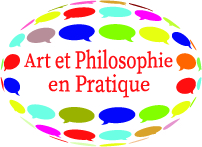Q. Will I be accepted for the course?
R. Everyone is accepted to the course, just remember to keep a certain rhythm in the sessions. Basically, we propose weekly sessions, but we can adapt to your availability.
Q. Am I being followed by one practitioner or several?
R. One trainer follows you and may collaborate with another colleague depending on everyone’s schedule and if you are interested in seeing the work of different practitioners.
Q. Who are you? What is your background?
R. We are philosophers practitioners trained in the facilitation of philosophical workshops and in the art of questioning and answering. We have 15 years of experience. We work with people of different profiles and interests and in several countries.
Q. What is the total duration of the training ? Is there a start date ?
R. The duration of the training is organized in programs of 10 sessions, over 10 weeks, from the moment you decide to start. Different levels of philosophy practice are proposed, which you can follow according to your possibilities.
Q. Does the training lead to a certification or a diploma?
R. We can issue a training certificate, if you wish; this will be done on the condition that you have followed the proposed program on a regular basis and following consultation with the training practitioners. We do not issue a diploma but transmit a know-how.
Q. Can the training be paid for by an organization?
R. As our association is not affiliated, you will not be able to have it covered by an agreement. If you have a concern about the financial aspect, let us know and we can discuss it.
Q. What is the cost of the training?
R. The session costs 100 euros for 1h30 of weekly practice in videoconference, our follow-up of your work and various theoretical documents accompanying your practice. It is possible to pay in installments and in the way you prefer.
Q. I don’t know enough English to work in that language, is that a penalty?
R. Your English doesn’t have to be perfect, but it does need basics to be able to have a relatively fluid discussion. You can always test it in a session. In addition, practice will make you more fluent, either in a session with us or in parallel by reading and listening to movies with subtitles.
Q. Are there any meetings outside of Paris?
R. If you give your email address you will receive information about our different activities.
Q. How many people are there in each group workshop by videoconference?
R. The weekly group workshops can accommodate between five and ten people, the number is set at the beginning of the program. We also organize thematic meetings on Zoom, where we have more people, between 20 and 100. As for weekend seminars, we are between 20 and 50, those of a week, about 50.
Q. Are there any training centers for philosophical practice ?
R. We are the only ones to offer this type of training based on the work of specific skills such as argumentation, conceptualization, problematization, questioning, etc. Other trainings are offered by academics, which put the foot in the door of animation, but several people who follow these trainings tell us that they are not complete and come to train with us as well.
Q. Is this a recognized profession ?
R. The profession of philosopher-practitioner is not listed in the professional nomenclature. However, over the past 30 years, this profession has become widespread and has been integrated into many organizations, companies and the private sector. As far as our practice is concerned, feel free to consult Youtube to see sessions filmed by Oscar Brenifier, his website or his Facebook page.
Q. Is it possible to open a practice for philosophical consultations or an associative structure ?
R. The practice will be the physical place to receive your interlocutors, you can take the status of self-entrepreneur, while the association could be an administrative structure. We advise you to consult specialists in this field to choose the best form for your business.












